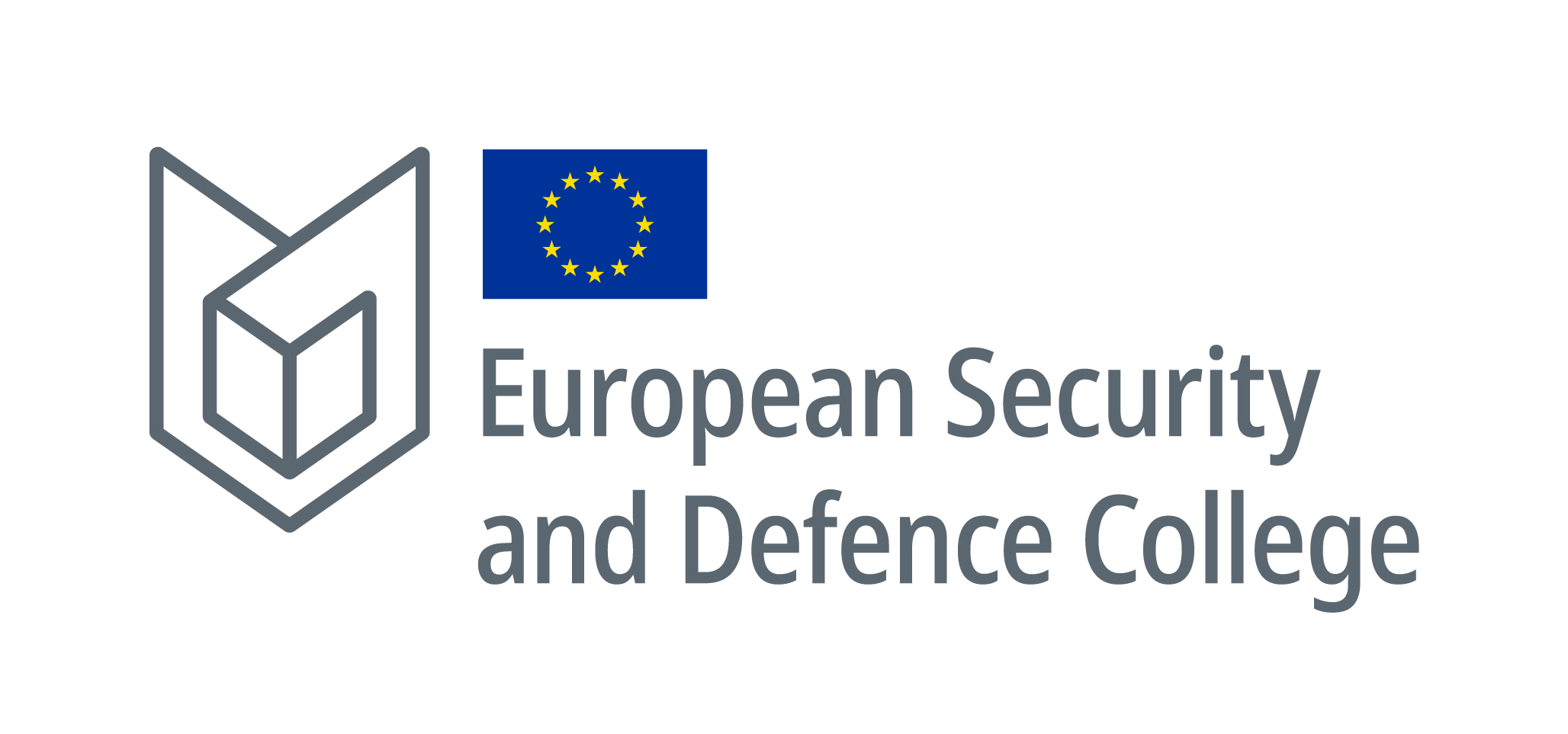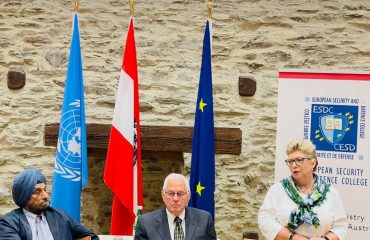
Figure 1 Course Group Photo
The course was held in the Albert Borschette Congress Centre, with active participation and excellent outcomes. The aim of the course was to provide participants with a basic knowledge of EU logistics policies, principles, concepts and procedures in CSDP missions and operations. On the first day of the course, trainees received introductory briefings aiming to explain EU logistics fundamentals, which enhanced their ability to identify logistics requirements and address possible challenges. On the second day, the audience was briefed on the scope of EU logistics, including logistics-related functions, and also worked in groups and exchanged findings on cooperative logistics projects. On the third day of the course, the audience was briefed on the external relations and dependencies relating to EU logistics, with the group work focusing on Multinational Logistics Cooperation. The fourth day of the course focused on the role of enabling processes and supporting functions, while trainees worked in groups with a case study on financial instruments. The course concluded with groups working on logistics assets in the cyber-domain, together with briefings on EU logistics and requirements in CSDP missions and operations.
Figure 2 Dr Daniel Fiott lecturing on EU Global Strategy, the Strategic Compass and Related Political Strategic Concepts
We would like to thank all the keynote speakers for their excellent contributions and input, and for the very high quality of their speeches and lectures. This enabled the course to become a unique and high-quality training opportunity. The content of the presentations and the highly relevant topics triggered thought‑provoking and rewarding discussions between the participants and the experts. The audience has been trained in how to deal with EU logistics at both multinational and national level, and from both a civilian and a military perspective. The course has enabled the trainees to manage logistics requirements and challenges, dependencies, enabling processes and supporting functions. The course has thereby laid the foundations for more in-depth civilian/military cooperation discussions on EU Logistics in CSDP Missions and Operations during the subsequent EU Logistics in Operations Course. This set of courses – the EU Logistics Fundamentals and the EU Logistics in Operations Course – are crucial events of the CSDP training programme and should be considered vital for the logistics personnel of the EU Member States and the EU institutions. We would also like to thank all 25 participants, from both the civilian and the military domains, for placing their trust in us, and we will do our utmost to continue to provide high-quality training.


